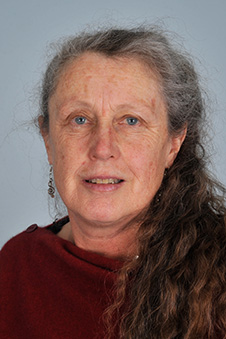New resources have been developed to guide medication reviews for older people on multiple medications to ensure patients are taking the right medication at the right time and in the right way.
The resources, which include pamphlets for patients, posters for GP waiting rooms, and communication tips for primary healthcare practitioners, have been developed by the Applied Research on Communication in Health Group (ARCH) at the University of Otago, Wellington.
The patient information leaflets include advice on questions to ask at their appointment with a GP or pharmacist, and recommendations to bring all their medicines and any natural remedies they are taking to the consultation.

Jo Hilder.
The lead researcher on the project, Jo Hilder, a Senior Research Fellow in the Department of Primary Health Care and General Practice, says educating patients about the need to have their medications reviewed is becoming increasingly important as the population ages.
“As people get older, some of the medications they are on may not be necessary any more. On the other hand, some people may not have been prescribed medicines which they could benefit from – research shows this is often the case for Māori patients.”
Medication reviews may be advised for Māori and Pacific people from the ages of 55 and for other ethnicities from the ages of 65. They often occur as part of a regular GP consultation, but pharmacist reviews may be funded in some areas.
The researchers were granted Lotteries funding for the project, which paid for 30-minute medication reviews for 17 patients taking four or more medications with health professionals, including clinical pharmacists, GPs and nurses. The reviews were video recorded, providing an insight into the actual conversations.
“Patient education, explaining what the drugs are for, and how to take them, is a really important part of the process. Patients aren’t always aware of the reasons behind the instructions they are given, such as to take a specific medication at night.”
During one of the consultations, it became clear a patient with diabetes had been re-using his insulin needles.
“The pharmacist explained why it was important to use fresh needles regularly for his insulin and shared images to show how an insulin needle would grow blunter after each use. This successfully got the message across and shows the value of visuals in communication.”
Ms Hilder says a recent survey led by the Department of Public Health at the University of Otago and published in the Australasian Journal on Ageing found 75 per cent of patients who had multiple health conditions had been prescribed four or more medications.
“The frequency of adverse drug events has been shown to increase with the number of medicines taken. A 2014 study published in the Cochrane Database of Systematic Reviews suggests the risk of adverse drug events rises from 13 per cent for patients on two medicines, to 58 per cent for those taking five medicines and to 82 per cent for those prescribed seven or more medicines. This makes it important to reduce the number of medications for people if it is possible.”
Ms Hilder says clinical guidance on appropriate prescribing and ‘de-prescribing’ for older patients has been available to health practitioners, but there had been no resources available on how to have conversations with older patients to allow for shared decisions to be made on medication.
“Conversations about reducing medication use can be challenging if older patients feel they are being ‘given up on’.”
The communication tips for clinicians advise keeping the consultation patient-centred and structuring it around the patient’s health conditions, rather than on their list of medications.
The researchers interviewed clinicians and patients and held focus group meetings to develop different versions of the pamphlets and posters appealing to Māori and Pasifika patients. The Māori-focused version was developed in association with Kōkiri Marae Health and Social Services in Wellington.
The resources are available for primary health care practitioners and patients throughout the country. They can all be downloaded and printed from the Healthify He Puna Waiora website, and can also be found on the ARCH group website.
Medicine reviews – Healthify He Puna Waiora
Medication review resources for patients and whānau – ARCH Group
Reviewing medications with older adults – Communication tips – ARCH Group
For more information, contact:
Jo Hilder
Senior Research Fellow
Department of Primary Health Care and General Practice
University of Otago, Wellington
Email jo.hilder@otago.ac.nz
Cheryl Norrie
Communications Adviser
University of Otago, Wellington
Mob +64 21 249 6787
Email cheryl.norrie@otago.ac.nz